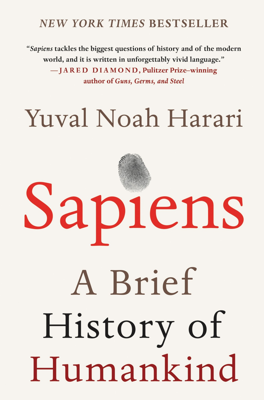And They Lived Happily Ever After
Overview of Historical Revolutions and Human Happiness
Over the last 500 years, humanity has undergone significant revolutions, integrating the world into a single ecological and historical sphere and incredibly boosting wealth. Despite these advancements through the Industrial and Scientific revolutions, it raises the question: has human happiness increased as a result of wealth, technological power, and radical socio-political transformations?
Questioning the Progress Brought by Historical Milestones
Historians often overlook whether societal changes have genuinely heightened human happiness. Though ideologies assert benefits — such as nationalists promoting self-determination or capitalists advocating for free market prosperity — the real impact on people's happiness is less clear. Doubts about the tangible benefits of systems like capitalism and social constructs such as nationalism or imperialism are contemplated, with suggestions that much of humankind's efforts may not necessarily align with achieving genuine happiness.
Investigating Happiness: Material Versus Immaterial Factors
The chapter delves into whether happiness arises from material factors like wealth and health or more immaterial aspects like societal values and life meaning. Studies have found that while increased income can lead to happiness, it plateaus at a certain point. Meanwhile, family and community connections often have more enduring effects on happiness levels. Notably, the role of expectations is pivotal — achieving what one desires does not necessarily lead to lasting happiness, due to the ever-increasing nature of human expectations.
Biological and Psychological Perspectives on Happiness
Biology posits that biochemical mechanisms, such as serotonin and dopamine levels, regulate our happiness, arguing that it remains relatively fixed regardless of external achievements or conditions. Psychological views suggest happiness depends on fulfilling expectations and the perception of meaningful lives; however, this could often mean adhering to prevalent societal norms, which may not necessarily align with one's personal truth or happiness.
Conflict between Modern and Ancient Understandings of Happiness
Modern views, heavily influenced by liberalism, equate happiness with individual feelings and the capacity to pursue personal desires. In contrast, many ancient philosophies and religions, like Buddhism, argue that true happiness comes from understanding life's impermanence and the futility of chasing transient pleasures. Buddhism, in particular, recommends recognizing the fleeting nature of feelings and fostering contentment through this awareness rather than continuous pursuit.
The Influence of Cultural and Media Narratives on Happiness
The chapter discusses how modern media and advertising can undermine happiness by setting unrealistic expectations for beauty, success, and lifestyle, influencing public dissatisfaction. The exposure to global standards can lead to discontent, even in regions that have seen material improvements in living conditions.
Contemplating the True Meaning of Happiness
Ultimately, the chapter invites readers to reflect on the deeper meaning of happiness beyond momentary pleasure or societal achievements. It questions whether happiness should be pursuit-driven or stem from a deeper understanding of life and acceptance of its ebb and flow. The broad historical view provides a backdrop to reconsider what constitutes genuine happiness and how societies might foster an environment that supports true well-being rather than merely superficial successes.
